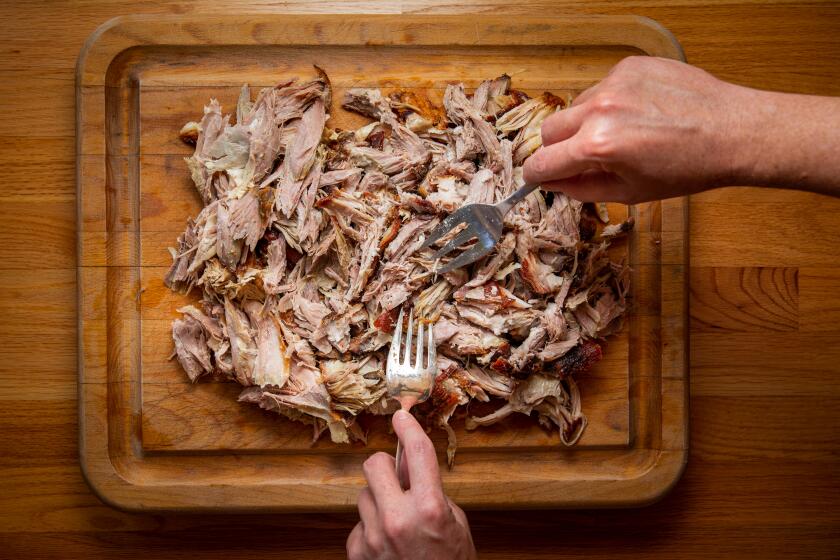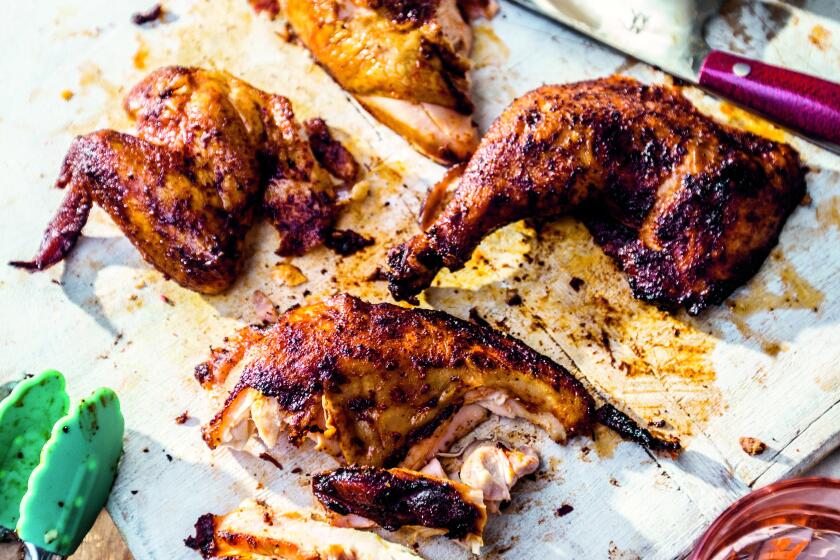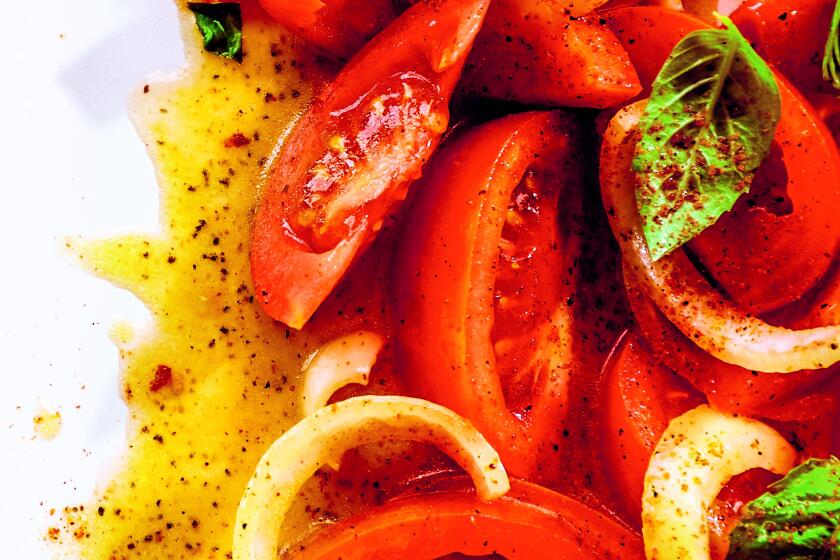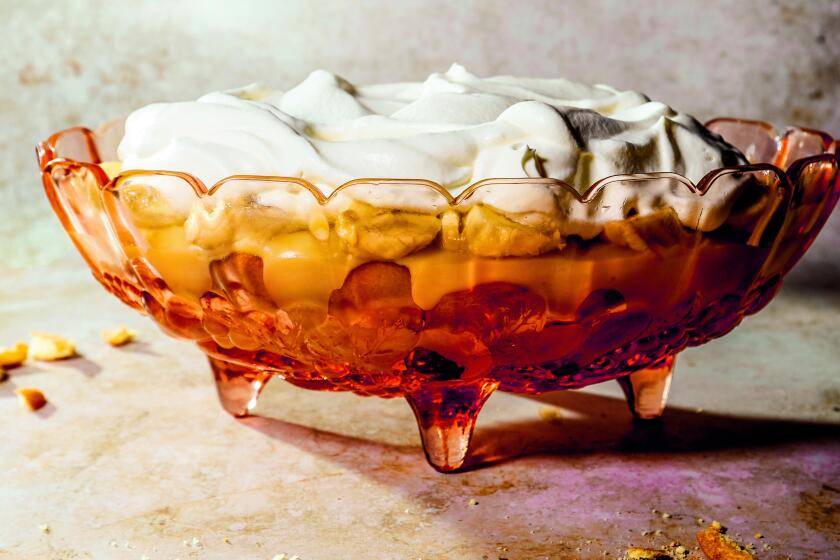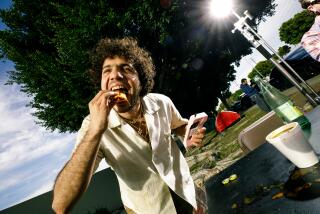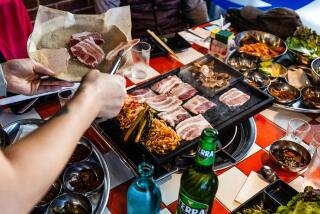Lessons on dealing with fathers and barbecue, from pitmaster Rodney Scott
I’d wager a guess that most fathers who happen to be into food have flipped through more than their fair share of grilling books. There’s something about grilling and barbecuing that seems to be inextricably linked to dads. It could be the stereotypically masculine practice of cooking meat over a fire or, more likely, the chance to stand in solitude with a cold beer and no one to bother them. Whatever the case, fathers have historically manned the grill, especially during the summer, when each weekend is either a grilling holiday or an excuse to treat it like one.
It’s this aspect that has led more than a few people — myself included — to find the grill to be the best place to bond with Dad or other men of a certain culture who might not open up about things like emotions and feelings but will sing like a canary about their favorite charcoal and barbecue sauces.
Growing up, my dad would wax philosophic when standing at the grill, and by the time he had a few beers in him, he would be able to move on to more gushy matters. We always had an awkward relationship — both of us were stone-faced and uninvolved with pesky emotions — but at the grill, we could talk about a few things: love of food, sure (that was our common thread) and maybe trucks or sports since I had a cursory working knowledge of both.
These memories bubbled to the surface while I read “Rodney Scott’s World of BBQ,” the new cookbook from the South Carolina pitmaster and de facto god of American barbecue, coauthored with Lolis Eric Elie. Preceding the recipes for smoked whole hog and fried catfish, there are essays that chronicle Scott’s experiences with everything from his first car — a 1985 Nissan 300ZX — to his first onslaught of media coverage, all sprinkled with anecdotes about his father, who was clearly a large influence on his life. It’s this relationship with his father, with whom he used to work closely at their family restaurant in South Carolina before their falling out, that most stands out in these essays.
In a recent conversation, Elie — who wrote his own seminal barbecue diary-meets-cookbook, “Smokestack Lightning,” in 2005 — talked about how the grill acts as a conduit for the fathers in our lives to express themselves, for better or for worse, in ways they can’t otherwise.
“Growing up, my father would barbecue all night long, and that’s when he’d bestow his knowledge,” said Elie. “The grill is a real topic of conversation, and it fosters more conversations. We can talk about life and act like it’s not so high-stakes.”
Whereas Elie and I both had experiences with our fathers at the grill that began and ended with often-awkward conversations, Scott’s history with his father, a subject chronicled at length in the cookbook, is the story of a deeper divide. For someone who learned his craft and got his business sense from his father, the rift is greater than just differences of opinions on sports or rib rubs. (A recent NPR article on Scott said “he and his father grew apart” as the pitmaster “began to gain culinary and international recognition.”)
“Rodney is such an incredible pitmaster, so the father-son story kind of gets short shrift in comparison,” said Elie. “But it’s an aspect of the book that I’m really proud of because Rodney has a compelling story. I wanted to showcase it in lots of smaller stories that would be interesting to you to read while not having to tell you every detail of his life. I wanted to get a sense of the man Rodney’s father was because he shaped Rodney. You know, [his father] turned his back on his son in a way that really looks bad, and we delve into that a lot in the book.”
However raw it may feel, Scott’s openness allows the reader insight into his personal life on a par with his professional one, which makes this poignant book an essential entry in the canon of barbecue books in America, of which there are very few (Elie’s “Smokestack Lightning” being the prime example and “Black Smoke” by Adrian Miller being another recent entry), that chronicle the history, influence and impact of Black barbecuers.
“These are the kinds of stories I’m glad we got in the book,” Elie says. “The kinds of things that would be useful to a young Black kid reading it, other than just recipes.”
Those stories help us understand how Scott, a James Beard Award winner who owns restaurants in Charleston, S.C., and Birmingham, Ala., has endured for so long and how his legacy is about so much more than food. And after Scott’s 20 years in the business, his fame, Elie says, is indicative of a culture shift in this country — that Black barbecue makers are finally getting the credit they’ve long deserved.
“Back when I wrote ‘Smokestack Lightning,’ a lot of the Black pitmasters who were in business were beginning to die out — and that wave sort of continued and a lot of those places are no longer open,” Elie says. “But the ones that survived got more acclaim, like Desiree Robinson at Cozy Corner in Memphis — who, in 2020, was the first Black woman inducted into the Barbecue Hall of Fame [at the American Royal] — and Kevin Bludso at Bludso’s here in L.A.”
Elie says that this staying power exalted the survivors into legends, able to weather the fickle changes in taste of diners and prove that barbecue has staying power. Bludso, Elie says, is so popular that restaurateurs now looking for a sure-thing concept in barbecue go straight to him for his knowledge.
“[Black barbecuers] have achieved a kind of respectability in that regard that wasn’t there before. You know, barbecue is hot, dirty work. Most white people wouldn’t do that kind of work back then, but Black chefs did. And because of that, the quintessential barbecue experience was always going across the tracks to the Black community.
“Part of the thesis in ‘Smokestack Lightning’ was that barbecue reflected American culture more than any other food,” says Elie. “Barbecue is this sort of canvas for us to express our ideas about what American food is and what it should be. American dining has changed dramatically in the past 16 years, and fine dining, especially, has become way more casual. So then you have someone like Rodney getting attention for something he’s been doing for decades. The nation is now paying attention and looking for the authenticity they weren’t looking for back then.”
For the most spoon-tender pork shoulder roast, time — and a lot of patience — make all the difference.
Scott’s use of quality ingredients and time-tested flavors and techniques demonstrate why he’s known for making some of the best barbecue in the U.S. And, thankfully, many of those dishes are chronicled in this book in delightful detail, such as directing you to warm honey and butter in foil packets on a grill to infuse maximum flavor into fish fillets, or tipping you off to the right type of wire you need to use as a grill grate in your cinder-block pit for cooking a whole hog.
While those types of projects might be great to build in the giant backyards of the South, Scott also has recipes that work perfectly for smaller setups and spaces in Southern California. His smoked chicken takes spatchcock birds and imbues them with flavor via his signature rub — teeming with paprika and chili powder balanced with just the right amount of brown sugar — and sauce while gently smoking them for 2 ½ hours.
Pair it with his potato salad and marinated tomatoes, two dishes that resist fancy flourishes to allow the vegetables to shine. And, blessedly, his banana pudding keeps things traditional with store-bought Nilla wafers and lots of homemade vanilla pudding stacked with ripe bananas and nothing more. This spread would be the ideal menu for a summer barbecue, whether it be for Dad or a group of your friends.
Through “Rodney Scott’s World of BBQ,” Scott and Elie deftly bring you into Scott’s corner of the South. The book reads like an oral history of barbecue, but one told through a true legendary practitioner who’s experienced his fair share of life, in and out of the smokehouse.
As always, the book’s greatest impact is in Scott’s food. His dishes — traditional, simple, delicious — remind me of where I grew up and the backyard I’d stand in with my own father at the grill, using its physical presence and the distraction of a burning, hissing rack of ribs as an opportunity to talk about the necessary nitty gritty just long enough before it was time for the meat to come off the fire.
Get the recipes:
Smoked Chicken
Marinated Tomatoes and Onions
Potato Salad
Banana Pudding
More to Read
Eat your way across L.A.
Get our weekly Tasting Notes newsletter for reviews, news and more.
You may occasionally receive promotional content from the Los Angeles Times.
